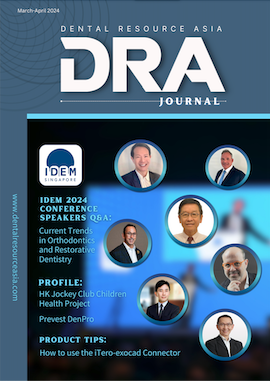UK: Researchers at the University of Birmingham have secured funding for a pioneering project aimed at developing mouth cancer-detecting lollipops. These innovative lollipops are poised to revolutionize the diagnosis of mouth cancer by enabling faster and less invasive detection.
The lollipops will be crafted using a sophisticated smart material known as hydrogel. This hydrogel is designed to capture proteins present in the patient’s saliva. Through the use of a fluorescent marker, the hydrogel effectively concentrates and labels these proteins, allowing for their observation under specific conditions.
Enhanced Diagnosis Process
The hydrogel-containing lollipop offers a less invasive alternative to current diagnostic methods, which often involve painful biopsies using flexible cameras. Early detection facilitated by these lollipops could significantly improve treatment outcomes for patients diagnosed with mouth cancer.
 Click to Visit website of India's Leading Manufacturer of World Class Dental Materials, Exported to 90+ Countries.
Click to Visit website of India's Leading Manufacturer of World Class Dental Materials, Exported to 90+ Countries.
With approximately 12,400 individuals diagnosed with head and neck cancers in the UK annually, the development of these cancer-detecting lollipops holds considerable promise for expediting diagnoses and reducing associated healthcare costs.
The project has received a £350,000 grant from Cancer Research UK and the Engineering and Physical Services Research Council, providing three years of funding. Dr. Ruchi Gupta, leading the research at the University of Birmingham, underscores the potential of smart hydrogels in diagnosing mouth cancer, highlighting their versatility in capturing proteins in saliva.
Future Prospects
While the current process of protein capture takes 12 hours, researchers aim to streamline this to just 10 minutes. Additionally, further testing is required to accurately differentiate the complex proteins associated with mouth cancer from other proteins present in saliva.
This research represents a significant advancement in the utilization of biocompatible hydrogels. Previously employed in tissue regeneration and drug delivery, hydrogels now offer a promising avenue for enhancing cancer diagnosis and treatment.
The information and viewpoints presented in the above news piece or article do not necessarily reflect the official stance or policy of Dental Resource Asia or the DRA Journal. While we strive to ensure the accuracy of our content, Dental Resource Asia (DRA) or DRA Journal cannot guarantee the constant correctness, comprehensiveness, or timeliness of all the information contained within this website or journal.
Please be aware that all product details, product specifications, and data on this website or journal may be modified without prior notice in order to enhance reliability, functionality, design, or for other reasons.
The content contributed by our bloggers or authors represents their personal opinions and is not intended to defame or discredit any religion, ethnic group, club, organisation, company, individual, or any entity or individual.


